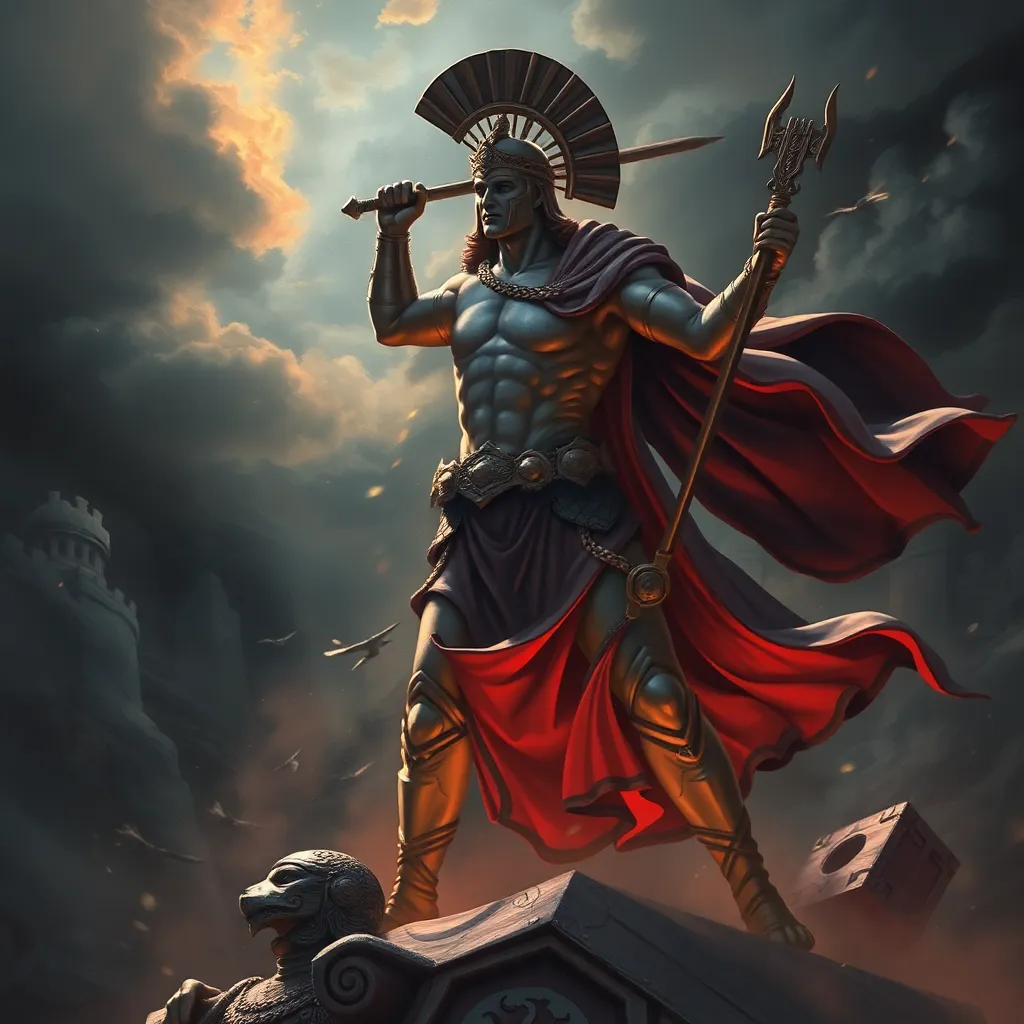The Myth of Perseus: Lessons on Courage and Bravery
I. Introduction
The myth of Perseus is one of the most celebrated tales in Greek mythology, showcasing a young hero’s journey filled with challenges, divine intervention, and ultimately, triumph. Perseus embodies the virtues of courage and bravery, essential qualities that resonate not only in ancient tales but also in our modern lives.
This article aims to delve into the lessons we can learn from Perseus’ journey, exploring how his story can inspire us to face our fears and embrace courage in our own lives.
II. The Origins of Perseus
Perseus was born to Danaë, daughter of King Acrisius of Argos, under unusual circumstances. Acrisius received a prophecy that he would be killed by his grandson, leading him to imprison Danaë in a bronze chamber. However, Zeus, the king of the gods, fell in love with her and visited in the form of golden rain, resulting in the birth of Perseus.
This remarkable beginning set the stage for Perseus’ destiny, shaped by the prophecy that loomed over his family. The role of fate and divine intervention is a recurring theme in Greek mythology, illustrating how the gods often play a crucial role in the lives of mortals.
III. The Quest for Medusa’s Head
The turning point in Perseus’ life came when King Polydectes, enamored with Danaë, sought to rid himself of Perseus by sending him on a seemingly impossible quest: to retrieve the head of Medusa, a Gorgon whose gaze could turn anyone to stone.
Medusa represents both beauty and horror, symbolizing the duality of human emotions and fears. Her story serves as a cautionary tale about the consequences of vanity and betrayal. Perseus accepted the challenge, showcasing his determination and courage, despite the overwhelming odds against him.
IV. The Allies and Tools of Perseus
Throughout his journey, Perseus was not alone. Key figures such as Athena and Hermes provided essential support. Athena offered him a reflective shield to avoid Medusa’s deadly gaze, while Hermes gifted him winged sandals for swift travel.
Perseus also received a magical sword and a helm of invisibility from Hades. These tools were vital for his success, emphasizing the importance of seeking help and utilizing resources wisely. Perseus’ story teaches us that while individual bravery is important, collaboration and support from others can significantly enhance our chances of success.
V. Overcoming Fear: The Encounter with Medusa
The encounter with Medusa was not just a physical battle; it was a psychological confrontation with fear itself. Perseus had to summon immense courage to face the Gorgon, whose terrifying appearance could paralyze even the bravest warrior.
By using Athena’s shield to view Medusa’s reflection, Perseus cleverly approached the battle without directly looking at her. This act symbolizes the idea of confronting our fears indirectly, allowing us to turn fear into strength instead of succumbing to it.
VI. The Consequences of Bravery
Perseus’ victory over Medusa marked a significant milestone in his journey, representing the triumph of good over evil and the power of courage. Upon successfully retrieving Medusa’s head, he used it to save Andromeda, a princess chained to a rock as a sacrifice to a sea monster.
This act of bravery not only secured Andromeda’s life but also showcased the ripple effects of courageous deeds. Perseus’ actions inspired others and changed the course of many lives, reminding us that our choices can have profound impacts on those around us.
VII. Modern Parallels: Courage and Bravery Today
The lessons derived from Perseus’ myth are remarkably applicable to our contemporary challenges. In a world where fear can often paralyze, Perseus’ story encourages us to confront our own fears and obstacles with courage.
Numerous modern heroes, whether in everyday life or extraordinary circumstances, embody the bravery characteristic of Perseus. Examples include:
- Healthcare workers facing the challenges of a pandemic.
- Activists standing up for social justice and equality.
- Individuals overcoming personal struggles such as illness or addiction.
To cultivate courage in our daily lives, we can adopt several strategies:
- Set small, achievable goals to gradually face fears.
- Seek support from friends, family, or mentors.
- Reflect on past challenges and how we overcame them.
VIII. Conclusion
The myth of Perseus offers profound lessons on courage and bravery that transcend time and culture. From his origins to his epic battles, Perseus teaches us the importance of facing our fears, seeking help, and understanding the impact of our actions on others.
As we navigate our personal journeys, let us embrace the values exemplified by Perseus and allow his story to inspire us to act courageously in our own lives. The enduring relevance of ancient myths like that of Perseus serves as a reminder that courage is a timeless virtue, essential for overcoming the adversities we face today.




